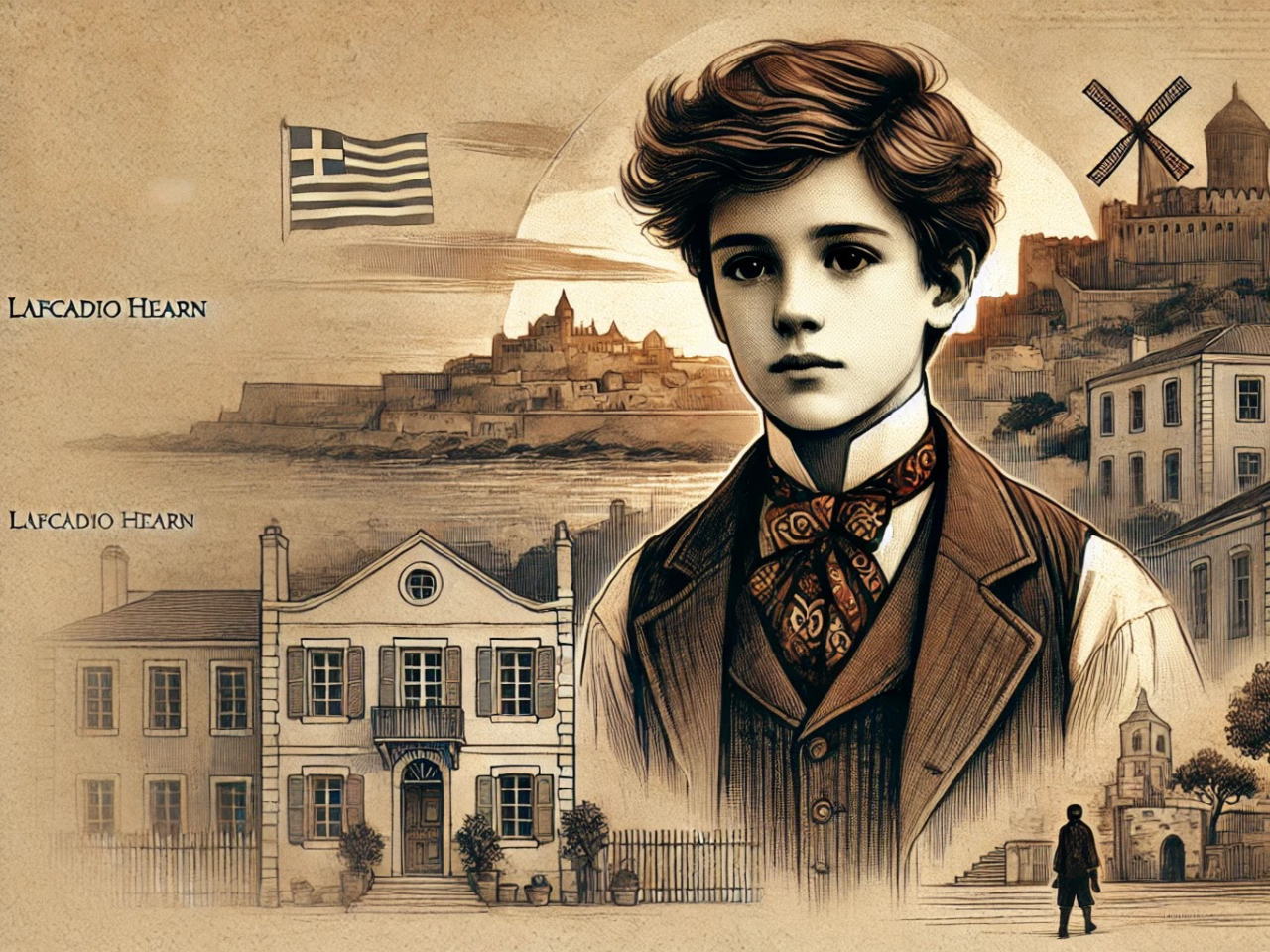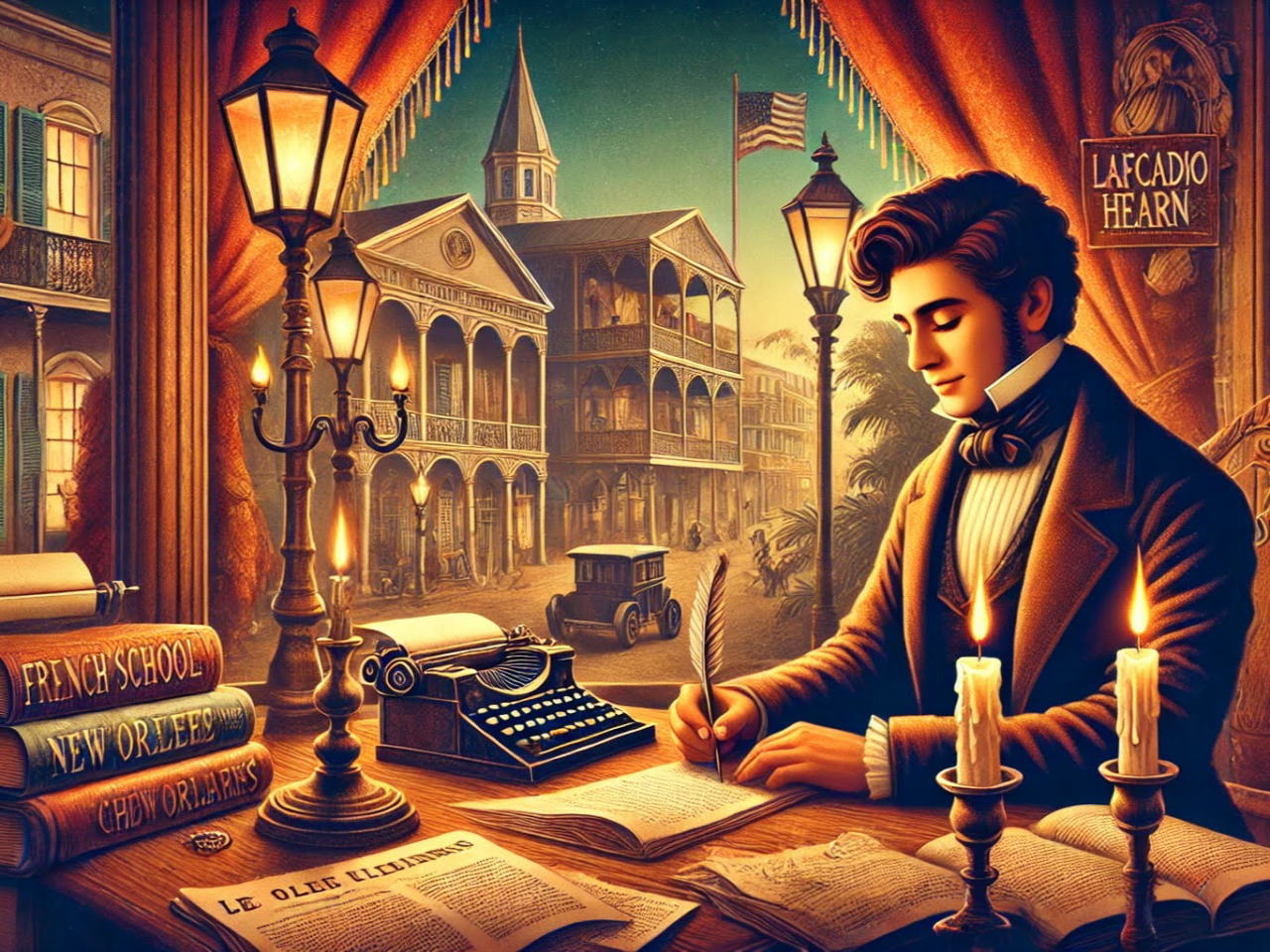
Childhood of Lafcadio Hearn
Lafcadio Hearn, known in Japan as Koizumi Yakumo, was born on June 27, 1850, on the island of Lefkada in Greece.
His given name was Patrick Lafcadio Hearn, with “Lafcadio” chosen as a nod to his birthplace. His father, Charles Bush Hearn, was an Irish-born British Army doctor, while his mother, Rosa Cassimati, belonged to the Greek aristocracy.
Despite his international heritage, his early family life was far from stable.
Parents' Separation and Early Hardships
Because his father was in the military, the family moved frequently.
Shortly after Hearn’s birth, his father was reassigned to the West Indies—a British colony at the time—resulting in the family being temporarily separated.
Later, the family relocated to Ireland, but tensions between his parents escalated, eventually leading to a divorce.
His mother, Rosa, became mentally unstable, and when Hearn was just four years old, he was separated from her and raised by relatives on his father’s side.
In particular, his aunt Sarah Brenane took charge of his education, imposing a strict regimen.
Despite her efforts, misfortune continued to plague his early years; after remarrying, his father resumed military service and largely severed ties with him, while his mother returned to Greece, her subsequent whereabouts unknown.
Monocular Blindness and Its Impact
A pivotal moment in Hearn’s life came at the age of 11, when an accident at boarding school caused him to lose sight in his left eye.
This loss had a profound effect on his personality, instilling deep feelings of self-doubt.
He began to avoid eye contact and became increasingly introverted.
Yet, this impairment also fueled his passion for reading and literature, ultimately shaping the distinctive perspective that would later define his work as a writer.
Life in France and America

Hearn initially attended school in France to pursue his education, but financial difficulties forced him to leave before completing his studies.
At 19, he moved to America to start anew.
In New Orleans, he forged a career as a journalist, writing extensively for English-language newspapers.
The city, a vibrant melting pot of cultures, especially fascinated him with its Creole heritage.
There, he collected local legends and ghost stories, publishing them as articles—a pursuit that later laid the groundwork for his renowned collections of Japanese ghost tales.
His distinctive, mystical writing style captivated readers and continues to be celebrated for its unique charm.
Reference Sites
https://www.hearn-museum-matsue.jp/ (Lafcadio Hearn Memorial)
https://www.kyotoprize.org/laureates/lafcadio-hearn/ (Kyoto Prize Laureate Profile)
https://www.irishcentral.com/roots/history/lafcadio-hearn-japanese-literature (Irish-American Writer Profile)
https://www.jnto.go.jp/ (Japanese Government – Promoting Japanese Culture Abroad)
